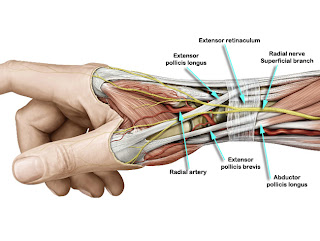Does McKenzie therapy improve outcomes for back pain?
Busanich BM et al searched databases like DARE, CINAHL, CENTRAL, EMBASE, MEDLINE and PEDro for efficiency of McKenzie therapy for spinal pain. They collected data from five lumbar trials. The pooled studies ware short term (less than three months) and from three at intermediate (3-12 months) follow-up.
McKenzie therapy results in a decrease in short-term (<3>12 months) outcomes or outcomes other than pain and disability (eg, quality of life).
They found at short term follow-up the McKenzie therapy provided a mean 8.6 point greater pain reduction on a 0 to 100 point scale and a 5.4 point greater reduction in disability on a 0 to 100 point scale than comparison. At intermediate follow-up, relative risk of work absence was 0.81 favoring McKenzie, however the comparison treatments provided a 1.2 point greater disability reduction. In the one cervical trial, McKenzie therapy provided similar benefits to an exercise program. The results of this review show that for low back pain patients McKenzie therapy does result in a greater decrease in pain and disability in the short term than other standard therapies.
Making a firm conclusion on low back pain treatment effectiveness is difficult because there are insufficient data on long term effects on outcomes other than pain and disability, and no trial has yet compared McKenzie to placebo or no treatment. To date, no authors have compared McKenzie therapy with placebo or no treatment.
There are also insufficient data available on neck pain patients.
McKenzie therapy results in a decrease in short-term (<3>12 months) outcomes or outcomes other than pain and disability (eg, quality of life).
They found at short term follow-up the McKenzie therapy provided a mean 8.6 point greater pain reduction on a 0 to 100 point scale and a 5.4 point greater reduction in disability on a 0 to 100 point scale than comparison. At intermediate follow-up, relative risk of work absence was 0.81 favoring McKenzie, however the comparison treatments provided a 1.2 point greater disability reduction. In the one cervical trial, McKenzie therapy provided similar benefits to an exercise program. The results of this review show that for low back pain patients McKenzie therapy does result in a greater decrease in pain and disability in the short term than other standard therapies.
Making a firm conclusion on low back pain treatment effectiveness is difficult because there are insufficient data on long term effects on outcomes other than pain and disability, and no trial has yet compared McKenzie to placebo or no treatment. To date, no authors have compared McKenzie therapy with placebo or no treatment.
There are also insufficient data available on neck pain patients.


Comments
Post a Comment